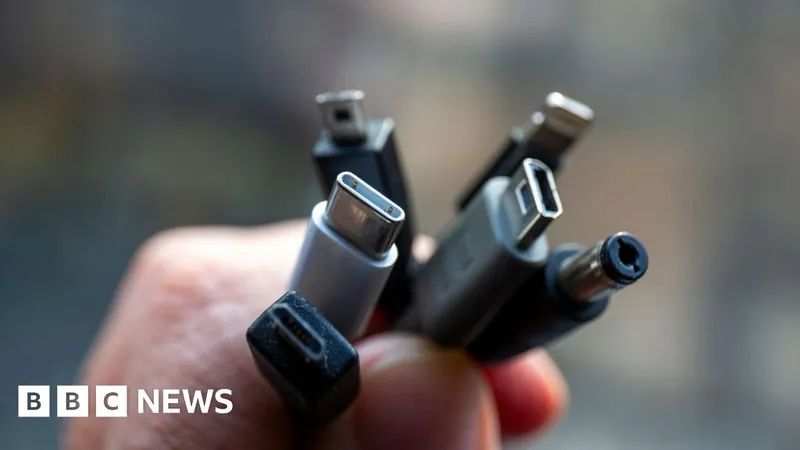
UK Considers Universal Charging Cable Rules: Is Change Finally Coming?
2024-10-15
Author: Jacob
The UK government is exploring the possibility of mandating a universal charging cable for all new electronic devices. A recent call for evidence, initiated in October, seeks public opinions on the potential advantages of standardizing charging cables, particularly advocating for the USB-C format, which has gained popularity among a wide range of modern gadgets.
This move follows the European Union's landmark legislation from 2022 aimed at combating electronic waste by enforcing the use of USB-C chargers among small to medium electronic device manufacturers. These regulations require compliance by December 2024, and while initially, the UK government expressed no intention to adopt similar rules, the growing trend in Europe seems to be prompting a reevaluation.
Environmental advocates have long criticized the plethora of different charging cables, which often end up contributing to electronic waste. Consumer groups highlight that the multitude of connectors and the resulting accumulation of discarded cables have become a significant source of e-waste in households across the country.
Moreover, Materials Focus, an organization dedicated to promoting the reuse and recycling of electronics, is urging consumers to recycle old cables as the demand for their copper content rises. Their 'Recycle Your Electricals' campaign revealed a staggering statistic: over 600 million unused or discarded cables exist in the UK alone.
The industry has also seen major players adapt to changes; notably, tech giant Apple phased out its proprietary lightning chargers for newer iPhone models in favor of USB-C ports starting with the iPhone 15 last September. This shift was prompted by the EU's stringent laws, with Apple having introduced lightning connectors back in 2012 with the iPhone 5.
However, some experts caution that the push for universally compatible chargers could inadvertently lead to an increase in discarded lightning cables and other obsolete connectors, raising fresh concerns about e-waste.
As the UK navigates this pivotal decision, the potential adoption of universal charging cables could mark a significant step towards reducing electronic waste and promoting sustainability. Will the UK follow in the footsteps of the EU, or will it forge its own path? Only time will tell, but for consumers, the prospect of a single charging cable for all devices is certainly an enticing prospect!









 Brasil (PT)
Brasil (PT)
 Canada (EN)
Canada (EN)
 Chile (ES)
Chile (ES)
 España (ES)
España (ES)
 France (FR)
France (FR)
 Hong Kong (EN)
Hong Kong (EN)
 Italia (IT)
Italia (IT)
 日本 (JA)
日本 (JA)
 Magyarország (HU)
Magyarország (HU)
 Norge (NO)
Norge (NO)
 Polska (PL)
Polska (PL)
 Schweiz (DE)
Schweiz (DE)
 Singapore (EN)
Singapore (EN)
 Sverige (SV)
Sverige (SV)
 Suomi (FI)
Suomi (FI)
 Türkiye (TR)
Türkiye (TR)